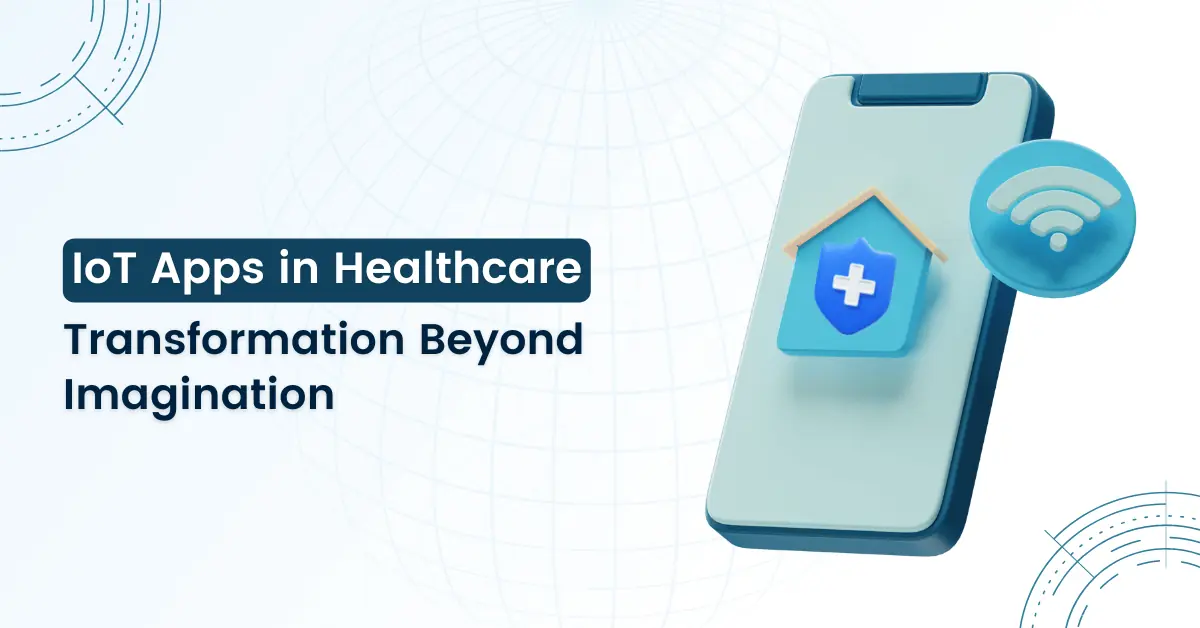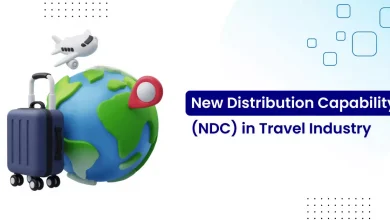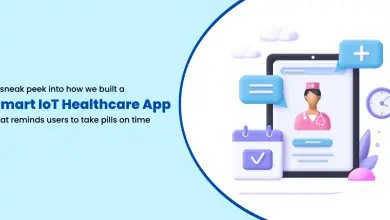
What’s the Internet of Things (IoT)?
The Internet of Things (IoT) is a network of physical devices, vehicles, home appliances, and other items embedded with electronics, software, sensors, and connectivity, enabling these objects to connect and exchange data. IoT devices can be used to collect and share data.
IoT in Healthcare Industry
In healthcare, IoT app solutions transform how doctors treat patients by providing valuable information that allows a patient’s needs to be more accurately identified. This includes everything from real-time monitoring heart rate and blood pressure and helping patients track their progress during recovery or rehabilitation, thanks to smart wearable devices like Fitbits that work in conjunction with mobile apps for iOS or Android.
IoT apps in healthcare can also be utilized for research purposes, allowing doctors to study large populations of patients with varying conditions or histories and make evidence-based decisions about ailments or treatments. For example, a smartwatch might monitor your heart rate and alert you if it detects any unusual activity level or if it senses that your heart is beating too fast or too slow.
By collecting data from IoT-based devices that are already part of the standard patient care process (like a glucose monitor), you can learn more about how people respond to certain medications, which could help physicians prescribe better treatment plans. These smart devices allow patients to monitor their activity levels and sleep patterns, which helps doctors keep track of their overall health.

Do You Know the Key Benefits of Using Healthcare IoT Apps?
There are many benefits of using these apps, but it would take a long time to list them all. We have identified some of the top benefits which will help the healthcare industry.
- Have real-time data and have better patient engagement.
- Increased patient comfort
- Flexibility enables better patient satisfaction and faster recovery times.
- Security and system integrity is enhanced.
- Efficient monitoring of usage trends allows timely identification of potential issues.
- Remote management creates easy access to IoT apps.
Industry Impacts of IoT Apps – Statistics
IoT is an intriguing technology for industries of all sizes. As it grows, more businesses have started utilizing it to build cutting-edge solutions. Here are a few findings from reliable sources.
- By 2025, the global wealth of IoT tech will be $11 trillion.
- It will reach Million USD in 2026, with a CAGR from 2021-to 2026.
- By 2025, there will be 152,200 IoT devices connecting to the internet per minute.
How Much Does it Cost to Develop IoT Apps in Healthcare?
The cost of building an IoT healthcare app depends on several factors, including the features you want to include and how much time you want to spend managing updates.
For example, suppose you want to create a healthcare IoT app that allows users to make appointments with their doctors and receive reminders about upcoming meetings. In that case, it will probably cost around and beyond $5,000. This is because it’s a relatively simple process to build this functionality into an existing app.
However, suppose you want to build something more complex like a messaging function or receiving alerts about changes in their health status (such as high blood pressure or heart rate). In that case, the price can go up significantly because these features require more detailed coding.
For example, if this messaging service requires building a custom IoT healthcare app from scratch and requires ongoing maintenance afterward (something most IoT medical devices or apps do), expect costs for development alone to be around $15 to $20 per hour for one programmer or $25 to $30 per hour for two programmers working together.
(Note: Above costs are only given as an example and subject to change.)

Platforms to Develop IoT Apps
The Internet of things (IoT) is all about connecting devices to a network. But who wants to build their own IoT apps to connect any device? Thankfully, there are platforms that make developing IoT apps easier for anybody.

Future of IoT in Healthcare
With the increasing number of internet of things (IoT) health-related apps, we are looking at the future of IoT applications in healthcare. The future looks promising. And it’s not just about tracking your steps or heartbeats and visualizing them for you; it could be beyond monitoring real-time changes in your body.
Share Your Views
We hope you enjoyed reading about the Internet of Things (IoT), how IoT apps work in the healthcare industry, and some real examples of how this technology is improving our lives for the better. We are thrilled to see what comes next in IoT!
Are you also thrilled to witness it? Let us know your thoughts, views or experiences. We would be happy to read them!




